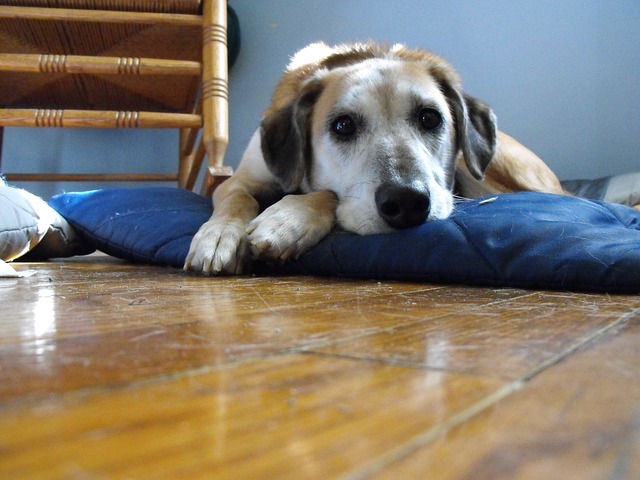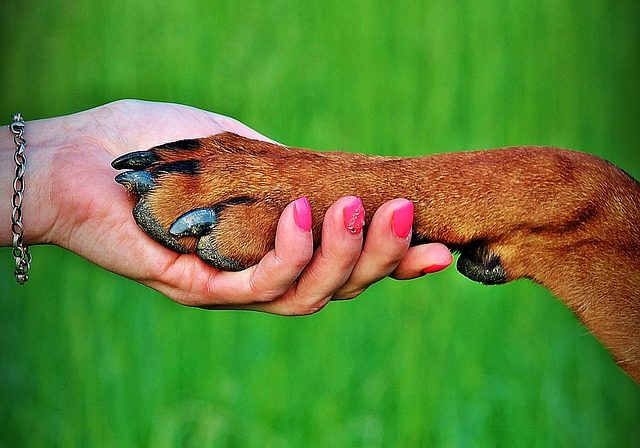Has a friend ever confided in you that the loss of their dog caused more grief than the death of a close relative? Have you ever felt this way yourself?
Society has conditioned us to feel ashamed of such emotions, but research suggests we are more than justified when we deeply mourn the loss of a furry friend.

When our first family dog, Spike passed away, my father suffered terribly. He would come home from work and just sit in his car, unable to face walking through the door without our little Poodle mix to greet him. He took long walks and visited online pet loss support groups. He woke up crying in the night.
Related: Check out our pet memorial store for thoughtful gift ideas
This was the same man who years later would practically carry me out of a family funeral when my own grief buckled my knees. At the time I was confused by his varying reactions, but a recent article from Business Insider sheds light on the subject. Turns out it’s actually quite normal for humans to experience more intense pain at the loss of a pet than that of a close friend or even a relative.

For many people, the death of a pet is comparable in almost every way to the loss of a loved one. There is even research to back this up, yet there are virtually no cultural rituals to help us cope. When a human passes away there are obituaries, eulogies, religious ceremonies, and gatherings of family and friends. We are given time off work – some employers even offer bereavement pay. There are so many ways in which we are encouraged to mourn and express our emotions.

When a pet dies, we often have none of these traditions or sympathetic supporters to turn to. Most people are expected to return to all of life’s responsibilities right away, with little or no closure. The house is strangely quiet and filled with bittersweet memories. We have lost a best friend and faithful companion, but the depth of that pain goes almost unacknowledged.
Pet owners are made to feel that their grief is dramatic, excessive, or even shameful. After all, “it was just a dog.” The incredible human-animal bond we have formed with dogs is overlooked. Our pups provide us with constant positive feedback. They adore us simply for being “us.” They lower our blood pressure and elevate our mood. How could we not be devastated when that is lost?
There is also the matter of the sudden life changes that occur when a pet passes away. There are no more 6 AM wet-nosed wake-up calls, daily walks, or warm greetings after a long day at the office. For many people, their pets give them a sense of purpose – even a reason for being. When that suddenly vanishes, it is understandably life-altering.

Another interesting factor pointed out by Business Insider is a phenomenon known as “misnaming.” It describes our tendency to accidentally refer to a child, partner or loved one by our pets’ names. This indicates that we place our dogs in the same mental category as our closest family members. When they die that is essentially what we have lost. A cherished family member.
The death of a pet means the loss of a source of unconditional love, a devoted companion, and a provider of security and comfort. Our dogs are sewn into the very fabric of our day to day lives. So yes, it hurts. Sometimes even more than the death of a friend or family member. And there is absolutely no reason to feel ashamed of that.
NEXT: Visit our pet memorial collection
H/T to BusinessInsider.com
Featured Image via Facebook/Dogs Make Life Better
